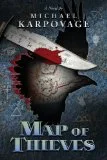by Shawn M. Gorley
Freemasonry recognizes men of many faiths, backgrounds and races; after all we are a “Brotherhood of man under the Fatherhood of God”. When one takes the lessons that are obtained from Masonry by “practicing outside of Lodge what he has learned within” he has the opportunity to become a better man. These two aspects of Freemasonry are intimately tied together no better than they were in the case of Bro. Ely S. Parker, (pronounced E-lee). Brother Parker lived in an unfortunate time where the race of a man was a huge issue in the United States, but even some did not let this stop him from becoming the best man he possibly could, and the impact his life had was a huge benefit to our country.
He was born in 1828 on the Tonawanda Indian Reservation in Indian Falls, New York a Seneca Indian with the name of Ha-Sa-No-An-Da, which means “coming to the front” or “leading name”. Ironically he would live up to his birth name. There is also record of his birth name being Hasanowanda which means “the reader”. At the age of 23 when he became Grand Sachem of the Six Nations (chief) he was given the Indian name of Do-Ne-Ho-Ga-Wa which translates to “keeper of the western gate” or “open door”, it’s also quite ironic that Parker lived up to all of these names and the fact that a Freemason can see the relation of Parker’s Indian names and their relation to Freemasonry. He acquired the white mans name Ely S. Parker being named after a Reverend Ely Stone who was a teacher at the Baptist mission school he attended as a boy.
As a young man Parker was an excellent student and was extremely fluent in the English language, while a teenager he was one of three people chosen as an interpreter to speak with President James Polk to discuss Indian affairs and a grievance over the sale of reservation land to a developer. It was during these talks when Parker realized the significance that law would have on the future of him and his people. It was also when he met a man by the name of Lewis Henry Morgan. Morgan saw the potential in Ely and aided in furthering his education by paying for his tuition at the Cayuga Academy. Together both men were members of a club called “The Grand Order of the Iriquois” which held their meetings in Scipio Masonic Lodge #110 in Aurora, New York which is where Ely Parker’s first exposure to Freemasonry occured. Brother Ely S. Parker was raised to Master Mason in Batavia Lodge #88 in 1847 and throughout his Masonic career he was affiliated with and served in many Lodges in New York and Illinois as well as being an active member in Council, Chapter and Commandery in both states. Ely Parker Lodge #1002 in Buffalo, New York is named after him. While in Illinois and serving as Master of Miner’s Lodge #273 in Galena; Parker raised a man by the name of John Corson Smith who eventually became the Grand Master of the Grand Lodge of Illinois. Smith who wrote a book titled ” History of Freemasonry in Illinois” also considered Parker to be his “Masonic Father” and also credits Parker to have had the most influence on his Masonic life.
After attending and graduating from the Cayuga Academy in his youth, Parker indeed decided to study law, and he did extremely well; he even took the bar exam and passed with exceptionally high scores. Unfortunately due to his Native American Heritage and also considering the time in which he lived, he was not considered a citizen and therefore could not practice law. Undoubtedly disappointed by this he sure did not let it stop him from reaching his full potential, anyways his knowledge of the law would come in handy later in his life. He then went on to study civil engineering at Rensselaer Polytechnic Institute. Upon his graduation from there he went to work as a civil engineer on the Erie Canal working on rebuilding sections of the canal that had deteriorated over time. After the Erie Canal project he moved on and was working for the Federal Government as Chief Engineer for the Chesapeake and Albermarle Canal as well as for the U.S. Customs House and Post Office in Galena, Illinois which still stands today. While working in Galena as well as his Masonic activities, Ely Parker became a very close friend to a man by the name of Capt. Ulysses S. Grant.
When the Civil War broke out in 1861 Parker was desirous to join the Union side of the fight like his friend Grant, but again and sadly his ethnicity initially kept him from serving at that time. He even went as far as to plead with the then Secretary of State Steward to retain a commission to allow him to fight only to be told “go home, it’s a white mans war”, suffice it to say, this wasn’t the first time Parker ran into this racial problem and this one instance sure wasn’t going to stop him either. He kept on trying to join the war effort, and through Masonic connections he was granted a commission courtesy of General J.C. Smith and he joined the Union forces. Ulysses Grant didn’t forget about his friend, Ely Parker; he secured an appointment for Parker in 1863 as Capt. of engineers and later that same year Ely served with Grant in Vicksburg, Mississippi. In the spring of 1864 Grant was promoted to Lieutenant General and posted in the eastern U.S. as the Commander of all Union Forces, wherein he asked Parker to follow him and serve as his personal aid. Towards the end of the Civil War, Parker would do one last monumental thing where he would have the ability to put his education and knowledge of law to good use.
Brother Ely Samuel Parker, a Native American Indian and Freemason who had fought against racism, and intolerance his entire life was the man who wrote the surrender terms and treaty agreement that was signed by Ulysses S. Grant and Robert E. Lee and in turn put an end to the U.S. Civil war. It was said the General Lee stated at the signing that “it is good to see a real American present” wherein Parker responded by saying ” we are all Americans Sir!”
If you enjoyed this piece, please feel free to share it on social media sites, or with your Lodge.
For more information on Bro. Shawn M. Gorley, please CLICK HERE










